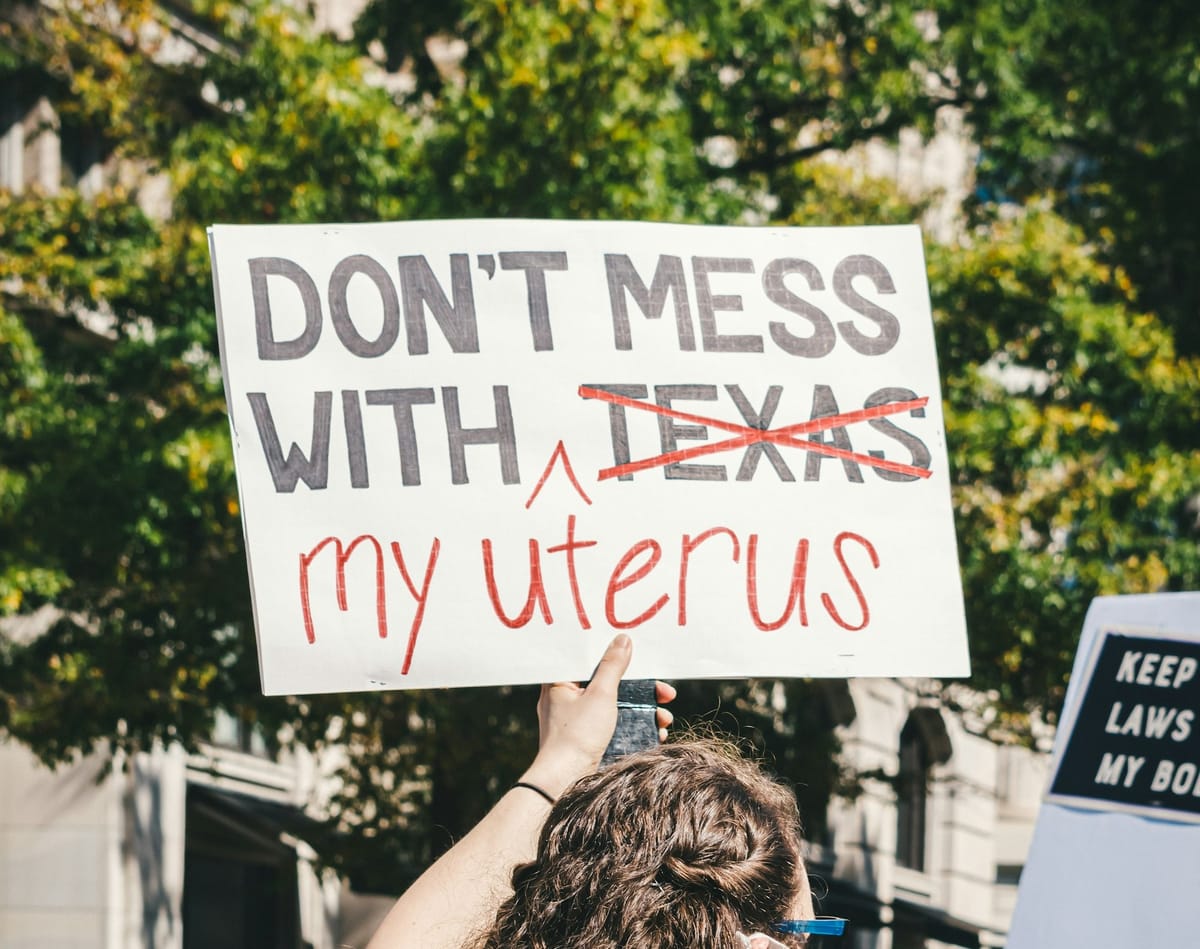Assessing Abortion At This Year's Texas Legislature
With the legislative session done, many of the most vocal reproductive rights advocates are finally getting a chance to reflect on what the heck happened

Since September 2021 (months before Roe v. Wade was overturned) Texas has been under a near-total abortion ban. But even under those extremes, several Republican lawmakers in the state were hoping for even more restrictions on abortion this legislative session.
The actual results were decidedly mixed. In the first weeks of the legislature, several bills were filed relating to abortion. Some, like a bill to test wastewater for traces of abortion medication, never made it out of committee. And a very sweeping bill to curb access to abortion medication by targeting providers or telemedicine companies unexpectedly did not make it on the House floor in time.
And yet abortion remained a prominent topic throughout the session. Senate Bill 33 passed, which bars local governments from financially supporting organizations or residents that seek abortion care out of state. Both San Antonio and Austin had voted to implement programs that helped residents obtain that care.
Then there was the bill known as the Life of the Mother Act. This was a bill purporting to clarify the medical exception to the state’s near-total abortion ban. But as it worked its way through the legislature, it was clear there was a lot more to the bill.
Before public testimony was heard on the bill, many reproductive rights experts were warning that SB 31 (also known as House Bill 44) contained within it a provision that could revive a centuries-old abortion ban. That zombie abortion law would have put organizations like abortion funds or telemedicine companies in extreme legal peril if they helped “furnish the means” for an abortion.
Ultimately, the language for SB 31 was amended to no longer resuscitate the archaic abortion ban. Some medical organizations issued statements thanking both Republican and Democratic lawmakers for passing the bill, but others noted that the bill was essentially a band-aid for a massive self-inflicted wound.
With the legislative session done, many of the most vocal reproductive rights advocates are finally getting a chance to reflect on what the heck just happened in Austin. One of those advocates is Kaitlyn Kash, a plaintiff in the lawsuit Zurawski v. Texas which sought to clarify the medical emergency exception in the state’s abortion ban. Kash experienced tremendous trauma because of the state’s draconian laws, even forcing her to seek medical care in Kansas.
Kash was an omnipresent fixture at the Capitol throughout the session, attending and speaking at several hearings or public testimony sessions. Because she lives in Austin, Kash felt essentially compelled to stay because things can change so quickly. “I felt like I had to be alert at all times,” said Kash in an interview with Texas Signal.
Kash, like many of the other plaintiffs in the Zurawski lawsuit, did not have much hope for reproductive care being treated as a serious health concern this session. And she was one of several witnesses to testify in front of both Texas Republicans and Democrats about the dangers of passing SB 31 without the language amending the zombie law from the nineteenth century. Many Texas Democrats, despite concern about reviving the 1857 law, reiterated they supported the bill because they still felt it was at least something to address maternal mortality.
As SB 31awaits the signature from Governor Abbott, Kash does feel that there was the “best of intentions” behind the bill, though it is ultimately not a true solution. She also acknowledges that legislators in Texas operate under a tough 140-day session with so many issues crammed into that miniscule time frame.
Nevertheless, she would have liked for many Democratic state representatives to have heeded concerns from people who experienced the medical and psychological trauma of not being able to receive care because of the Texas abortion ban. Passing SB 31 without amending the 1857 law would have compounded fears, according to Kash. “Why would we add more fear to this already incredibly confusing, incredibly traumatic, incredibly stressful situation?”
With the legislative session behind her, Kash and many of the fellow Zurawski plaintiffs are still intending to fight for reproductive justice in Texas, and the nation. They are attuned to the primary season getting underway in Texas, hoping to add more pro-choice candidates to a body that sorely needs them. And they are also planning to be in Washington D.C. later this month to mark the three-year anniversary of the Dobbs decision, which overturned Roe v. Wade.
The reproductive justice organization Free & Just will be bringing together over 100 abortion storytellers for a summit. Kash and other Zurawski plaintiffs will be there, continuing their quest to ensure no other person must undergo what they went through.



Comments ()